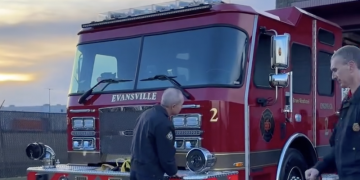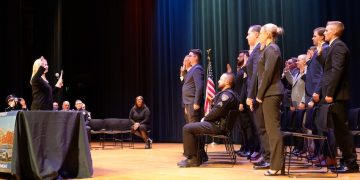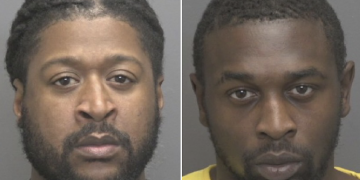Kyle Hart can attest to the most unglamorous aspects of a minor leaguer’s existence.
Now four years into his climb up the Boston Red Sox’s organization, the Indiana alum has stepped off the bus at 2 a.m. on road trips. He’s stepped back on at 6 a.m., hoping for a rain delay when they arrive at the stadium.
It’s a lot of McDonald’s breakfast before games and Waffle House after. It’s checking a bank balance every month, realizing more money is flowing out than in.
“Trust me, there are also some awesome times in minor league baseball, and I’ve been lucky to experience some of those,” Hart said, “but you gotta get to The Big Leagues.”
From Low A to High A, from Double-A to Triple-A, that’s all he’s heard. “You gotta get to The Big Leagues,” he was told by former IU teammate Sam Travis, who at that point was just a couple of steps ahead of Hart in the Red Sox system.
Hart isn’t quite a big-leaguer yet, but the lefty pitcher is as close as he’s ever been. Competing at the Red Sox’s camp this month as a member of the 40-man roster, he’s literally on the boundary between the minors and majors.
It’s a line every player wants to stay on the right side of.
“Once you see this, it’s eye-opening,” Hart said. “You don’t know how bad you want it until you get this close and you’re like ‘Wow, we have to work as hard as we can’ — because, No. 1, these guys are really good, and No. 2, I don’t want to go to the minor leagues.”
As of Monday night, Hart wasn’t sure where he was headed. He could have been bound for Baltimore, ready to debut on the Red Sox’s roster versus the Orioles. Or, in this shortened, pandemic-altered season, he could have been on his way to Pawtucket, R.I., to train at the team’s “alternate site,” basically on-call for the big league club.
Either way, this is an anxious and exciting time in Hart’s career, from 19th-round pick in 2016 to just one step away in 2020. From pitching on a mound in his backyard this summer, his dad catching, to throwing batting practice to J.D. Martinez and Xander Bogaerts at Fenway Park.
“It’s a situation where you find yourself staring off into space. The pictures on the wall, the little plaques all over, the Monster, the Ted Williams seat,” Hart said. “You catch yourself looking around, like, wow, Babe Ruth played here. You do get caught up a little bit.
“But then the lights come on, and you have to go to work, because it’s 60 feet, 6 inches, and there’s a guy there trying to hit the ball over the fence.”
By all accounts, Hart has fit in well. Just last week, the 27-year-old lefty pitched four scoreless innings during an intrasquad scrimmage, keeping himself in the conversation to make the MLB roster as a long reliever or spot starter.
He’s one of a few IU alums with a shot. Aside from more established position players in Josh Phegley, Kyle Schwarber, and Alex Dickerson, emerging pitchers in Hart, Aaron Slegers (Tampa Bay), Caleb Baragar (San Fransisco), and Jonathan Stiever (Chicago White Sox) are in camps.
Surviving the cutdown to 30 was always a slim proposition for Hart, because almost all of the candidates for Boston’s staff have previous MLB experience. But regardless of the outcome, this experience has reminded Hart what he’s been working for at the lower levels.
“I get to work at Fenway every day,” Hart said. “Just trying to imagine what it sounds like with tens of thousands of people, because that’s the part that’s missing right now. You can throw four or five (scoreless innings) in an intersquad, but can you do it against the Yankees with the game on the line, with 35,000 or 40,000 people yelling at you? I’m hoping I get to experience that last piece.”
There are smaller perks, too. In his off time, Hart has golfed with stars like Andrew Benintendi and Jackie Bradley Jr. The food options inside the bubble at the Red Sox hotel aren’t as extravagant as in years past, but the team has hired renowned chef Allen Tran to cook meals that are boxed up and left in a warming drawer for pick-up.
The other night, Hart was eating salmon, rice, and brussels sprouts rather than Mickey D’s.
“This summer camp, being so close to opening day, it is a good look at what The Big Leagues is like,” Hart said. “It’s worth grinding the minor leagues out, because you have an opportunity to make your family proud, to play for a team like the Boston Red Sox, and to ultimately make a good living if you are lucky.”
The road has been long, but it was destined to be that way for Hart. First of all, he wins more with command than overpowering velocity. He was also set back by a Tommy John surgery in his true junior season in 2014.
The modest $5,000 signing bonus Hart received in 2016 has added to his underdog mythology, but it was an acceptable amount. He had an offer in 2014 for $100,000, if he wanted to rehab with that MLB club. Following a 5-0 redshirt junior season for IU, posting a 1.21 earned run average, MLB teams were again pitching low six-figures.
“I was privileged to get those calls and have those discussions, but it just didn’t add up,” Hart said. “That Tommy John put a wrench in my academics, I had a really bad semester. I had a computer class and I couldn’t type … so that fifth year was big to wrap up with. Plus, you get a year to be at IU, which is after having four of them.
“I was like ‘Man, I can do this again?’ You know?”
IU meant so much to Hart, and it’s remained a part of his major league journey. He’s had Schwarber, his former roommate and catcher, finding time between games with the Cubs to watch Hart’s appearances and give feedback.
The Hoosiers’ other “Bash Brother,” first baseman Sam Travis, came down to Hart’s level in the Red Sox’s system following a knee injury and offered his advice.
“He kind of gave me that mindset, you have to get out of the minors. You have to fight and scratch and claw to get to The Big Leagues. It’s the only place to be,” Hart said. “He did that, too. He refused to be in the minor leagues. He kept fighting, kept fighting, until he got some consistent time.”
Hart has had his successes on the way up. He currently holds a career 3.13 ERA in four minor league seasons, including a 2.91 mark in Double-A Portland in 2019. In one game, Hart and two other Red Sox prospects pitched a combined no-hitter versus the Binghamton Rumble Ponies.
Very little about Hart’s style has changed from his time at IU, except a cut fastball he’s added to his arsenal. For the most part, he’s just a little stronger. His changeup has just a little bit more deception to it.
Whether it’s pitching to his dad in the backyard post-pandemic, or to fellow pros at Fenway Park, Hart has just tried to remain consistent.
“You’re around baseball all the time, it’s easy to let this lifestyle take you over and not stay locked in on the tasks every day that are going to get you better,” Hart said. “You’ll see guys that get too high or too low, and the game will roll you into a ball and spit you out.
“You can’t get caught up in ‘Am I good enough? Am I not?’ If you get wrapped up in that stuff, you’ll be out of the game really quickly, and I’ve seen it happen to a lot of guys, some of them my friends. All you can do is do your best and you’re at the mercy of the ownership.”
Hart has moved up as far as he can, except for that last step. He’s tried not to think much about what’s coming, just what is going on in the moment.
That’s pitching to Martinez and Bogaerts and others. Or calling up a former teammate in Slegers and talking about changeups. Or waiting for Schwarber to finish up whatever he’s doing, joining him for a game of Call of Duty.
If that other call comes, it comes.
“You just live your life working as hard as you can, your phone is on as loud as it can be — you just never know,” Hart said. “Ultimately, you are waiting for a trade or someone to roll an ankle. You have to sit around and wait for an opportunity, which isn’t always a positive thing for someone else, and it’s not the most fun thing to sit around and wait for it, but it’s part of the game.
“I don’t have any other goals other than be a good teammate and get my foot in The Big Leagues. That’s definitely my goal.”














































































